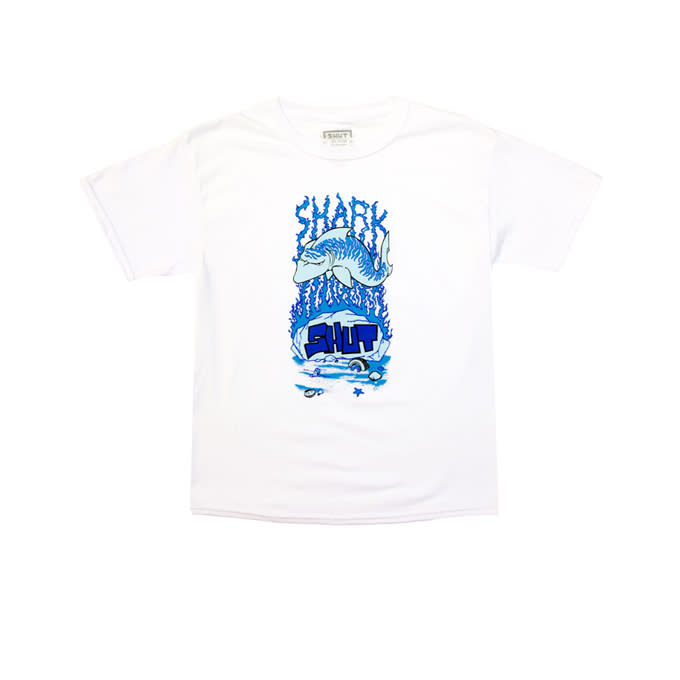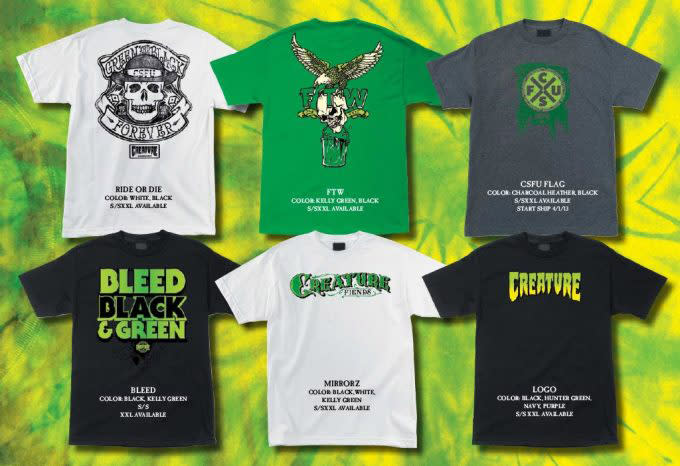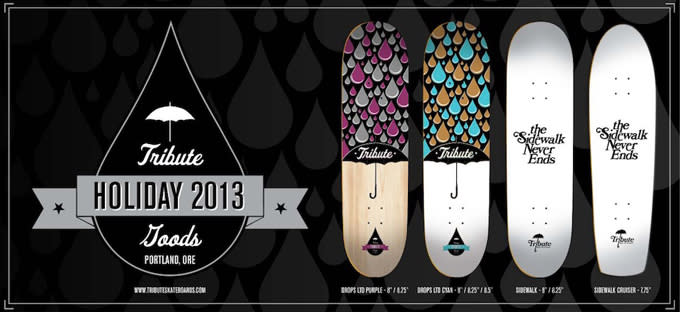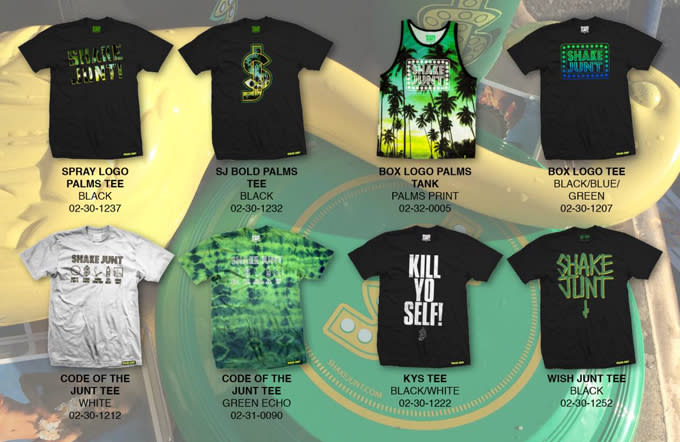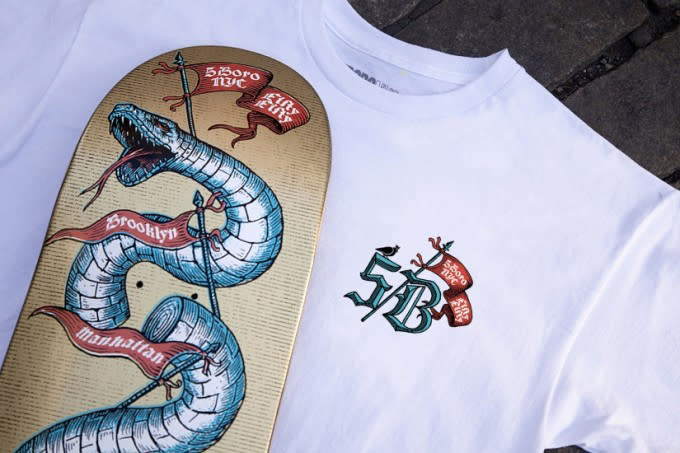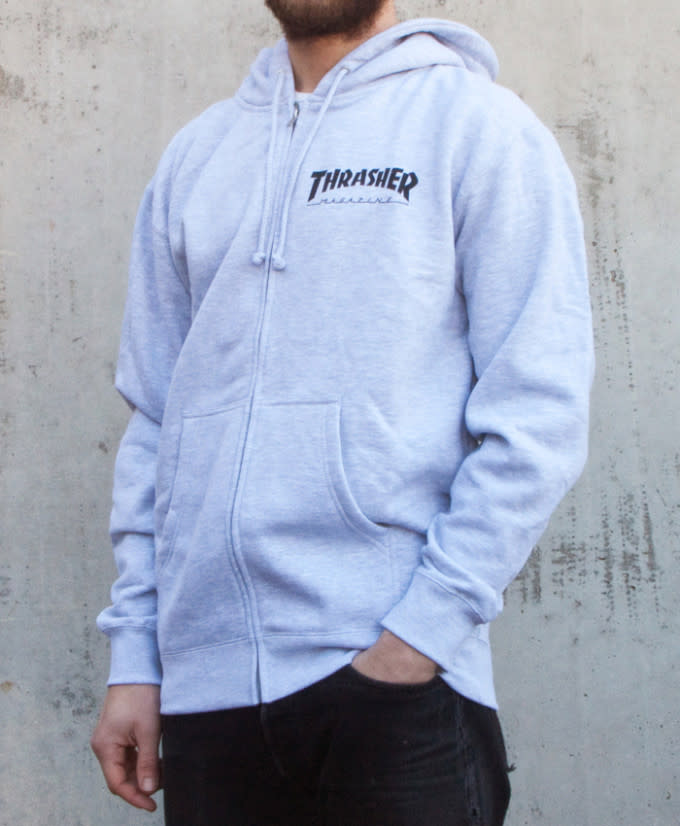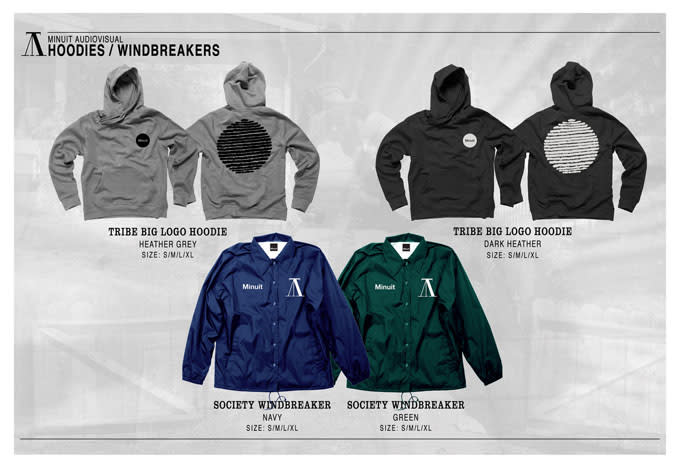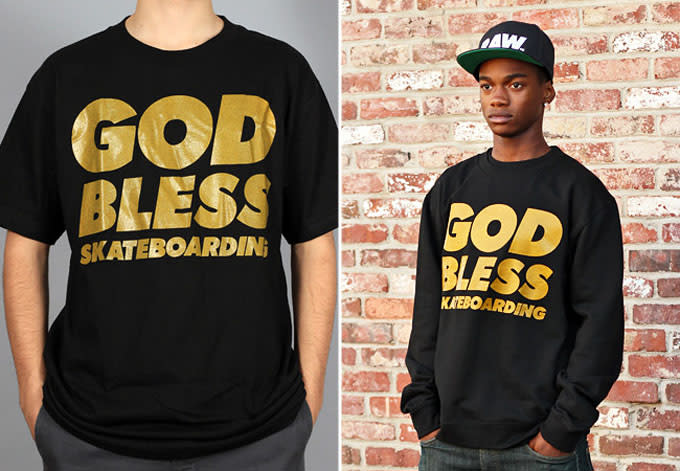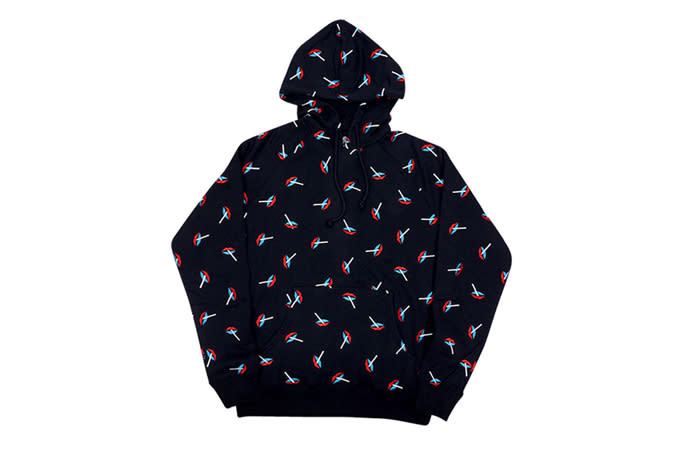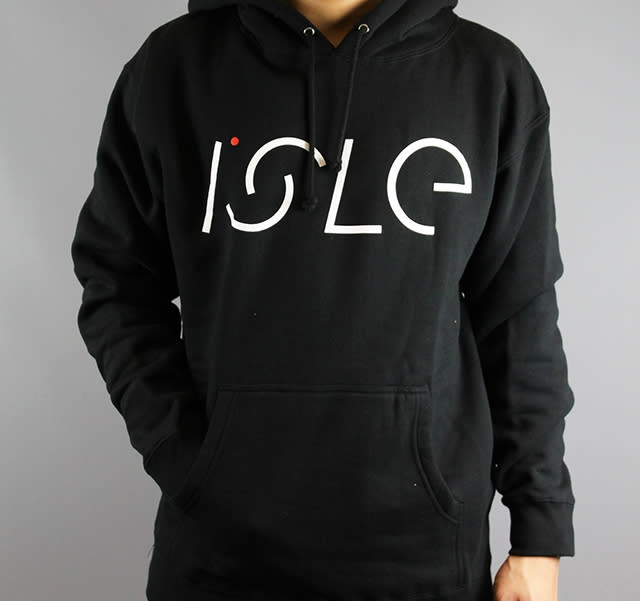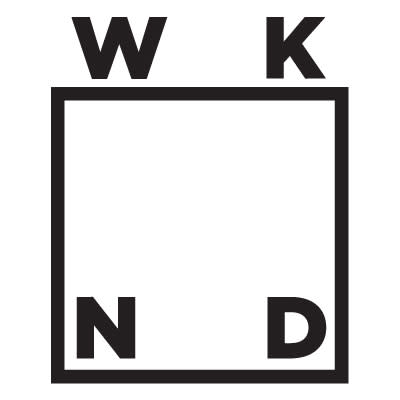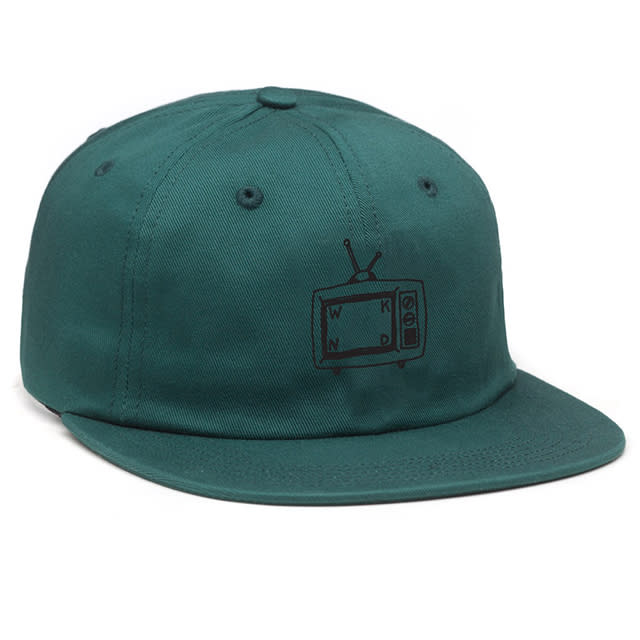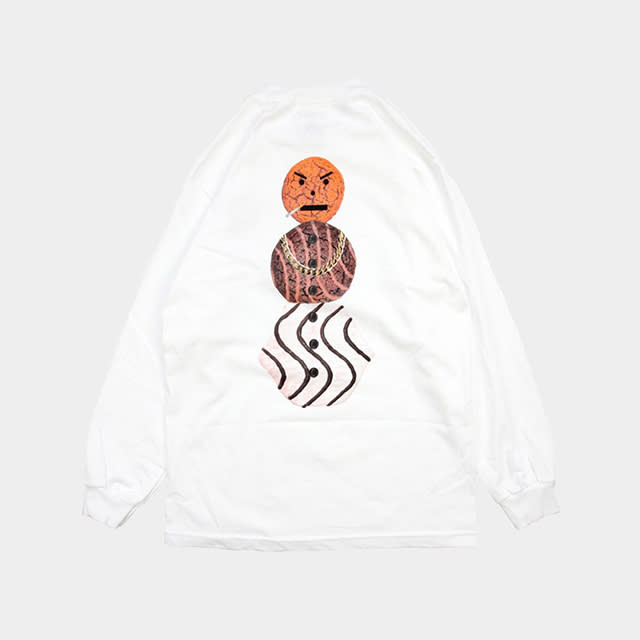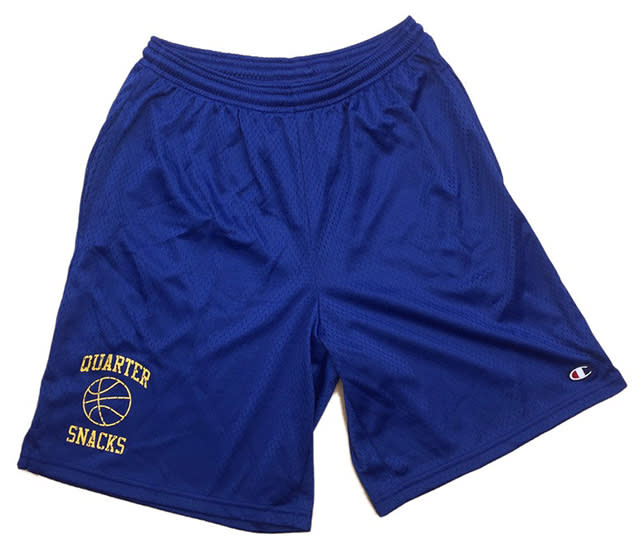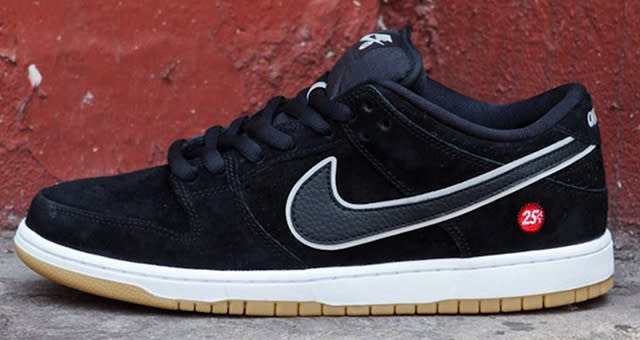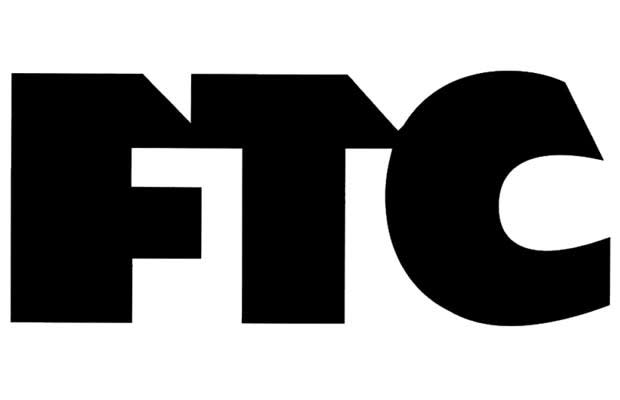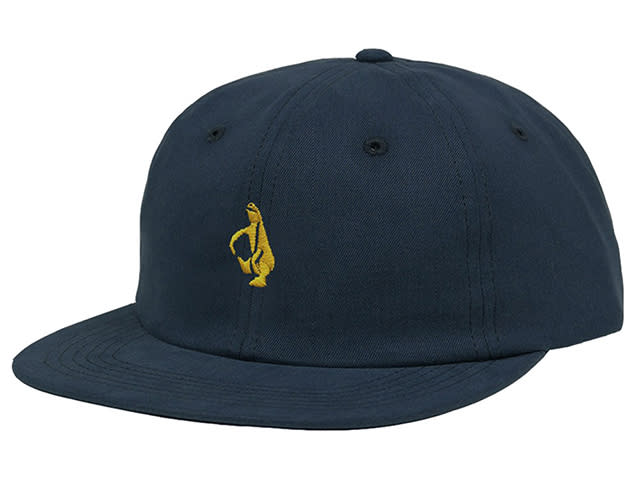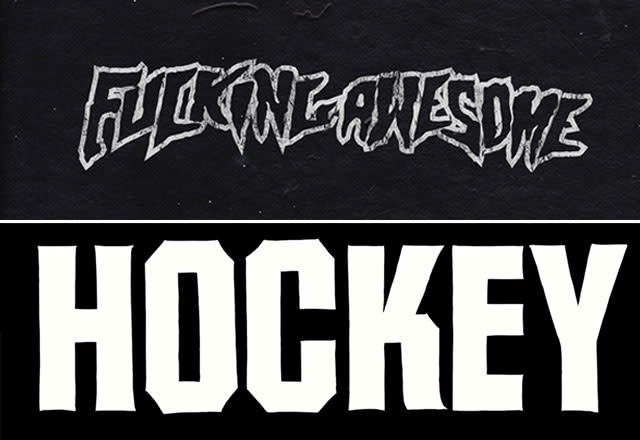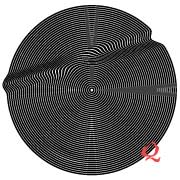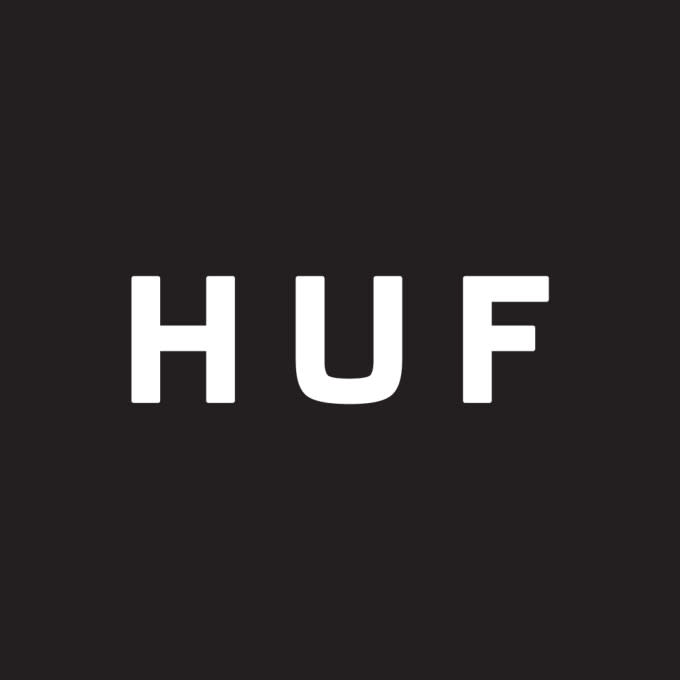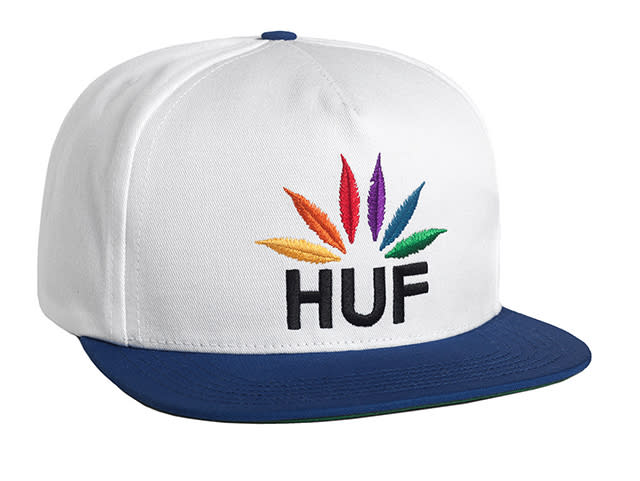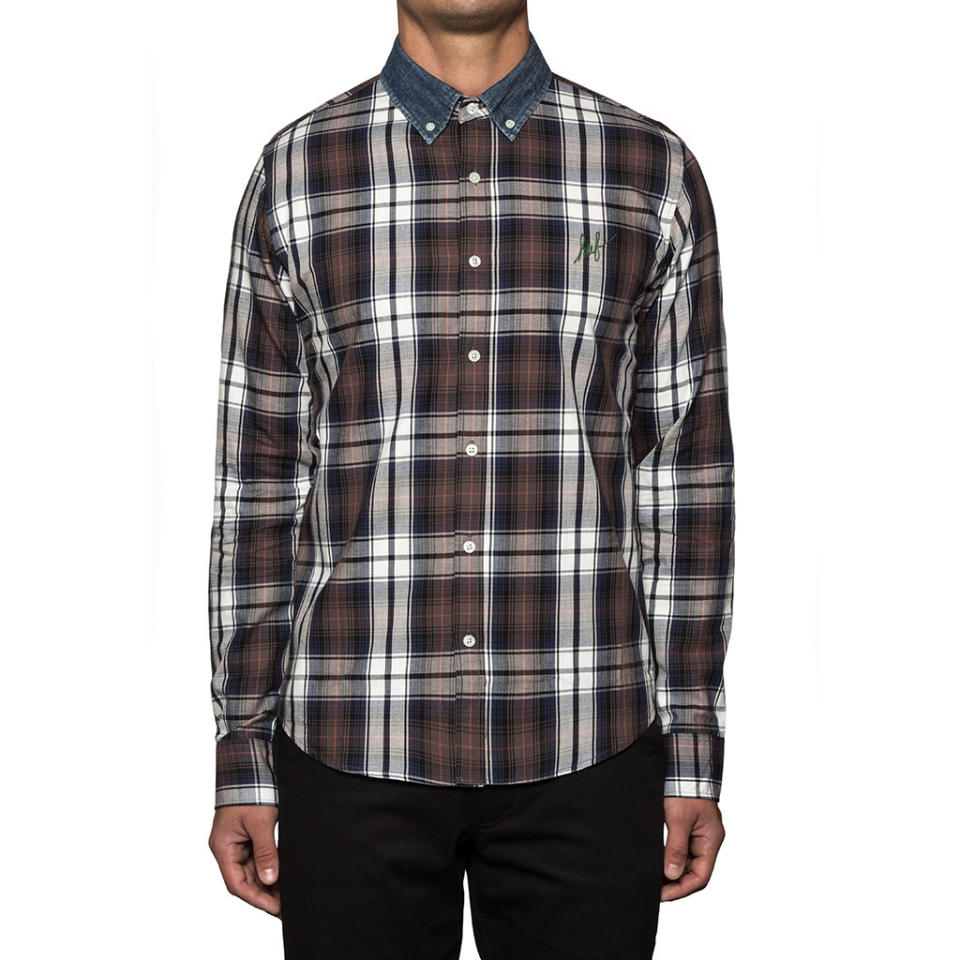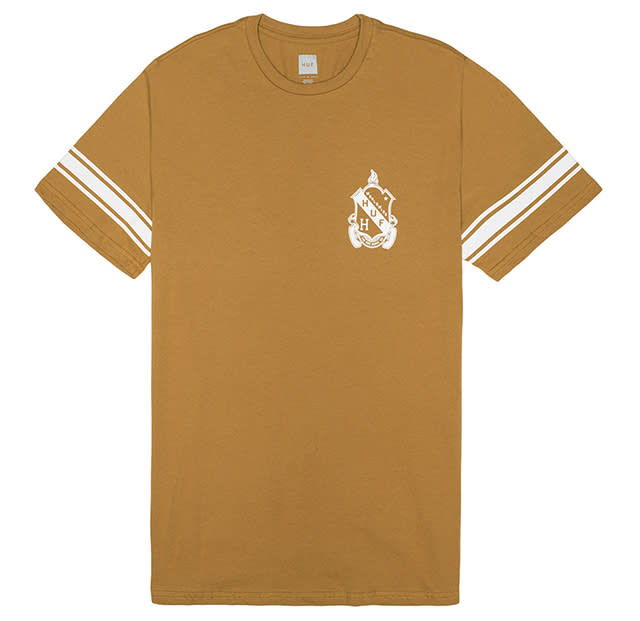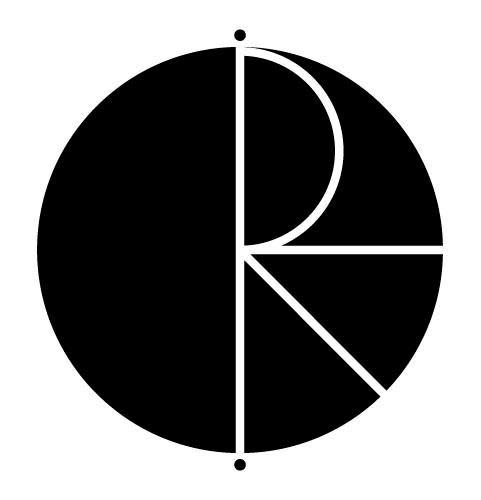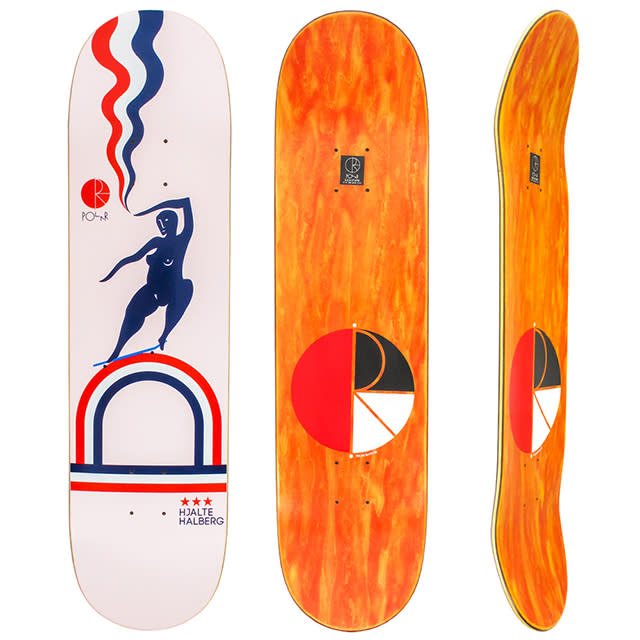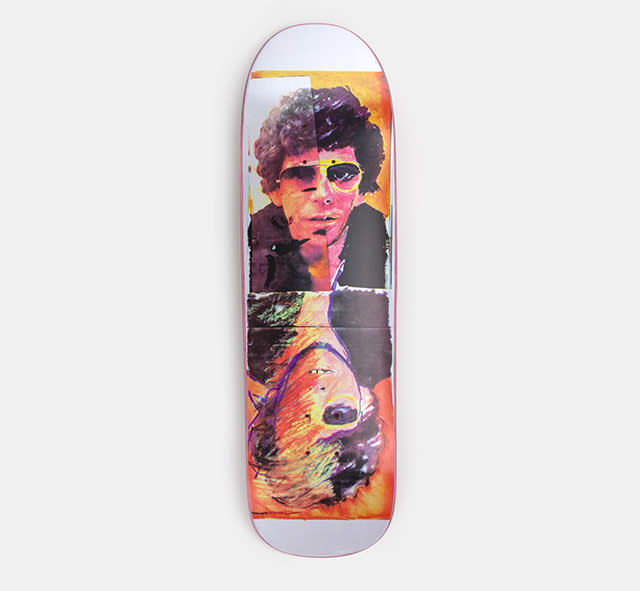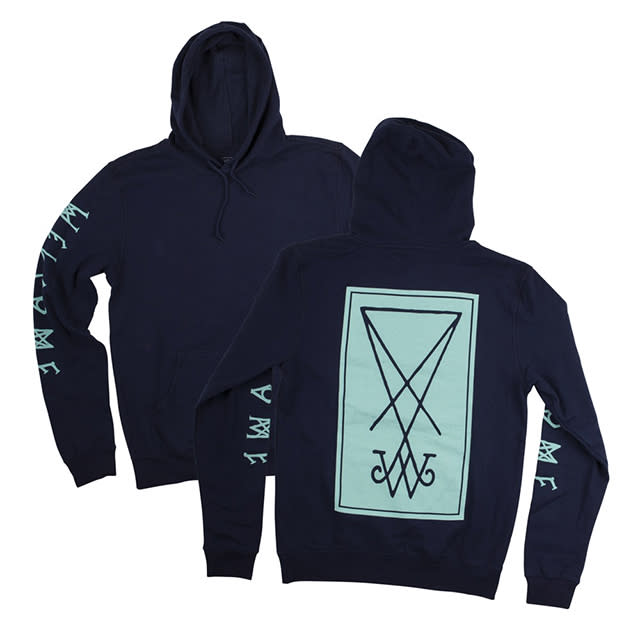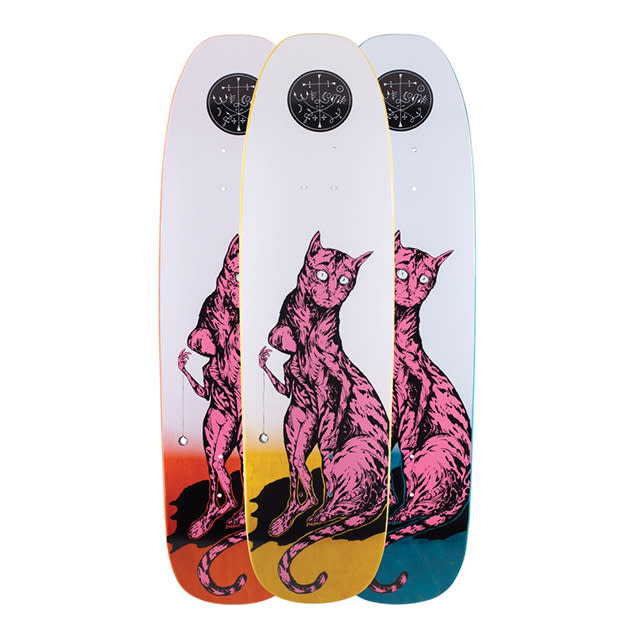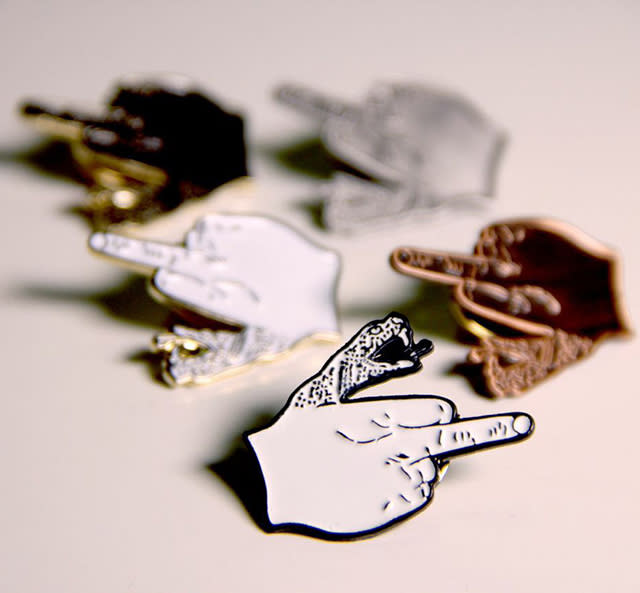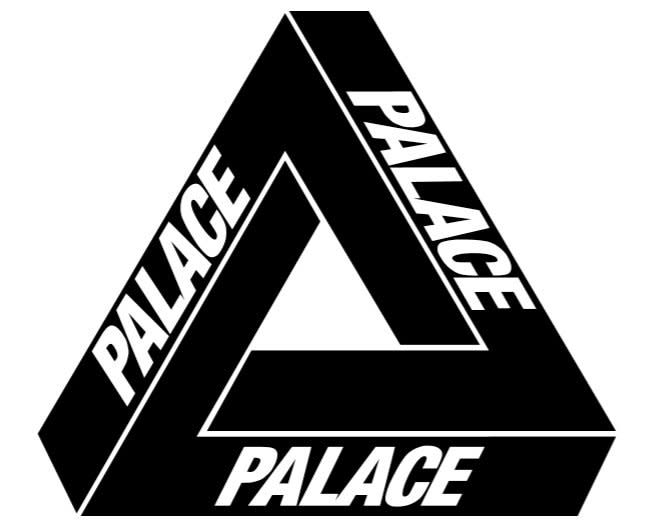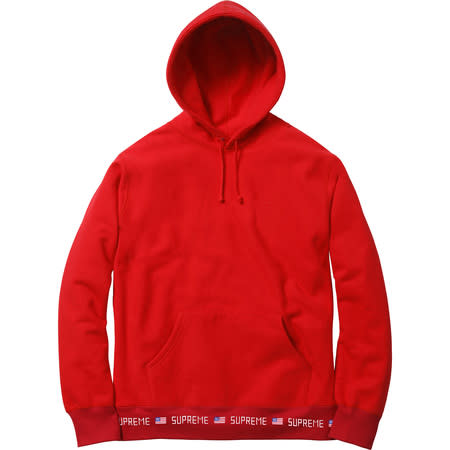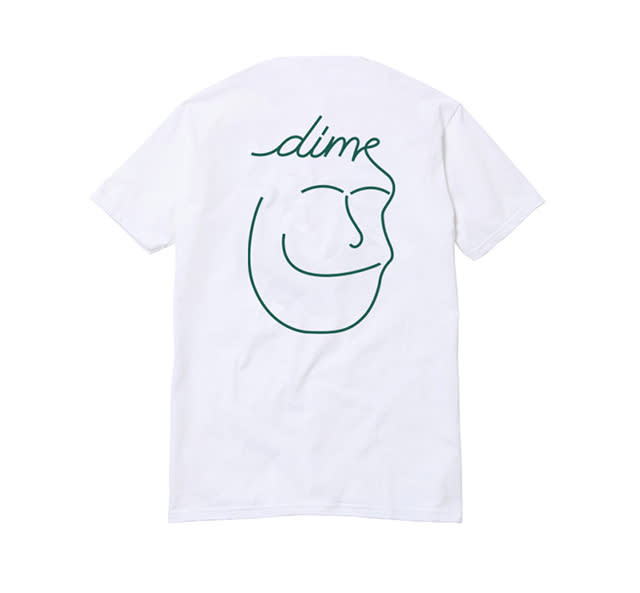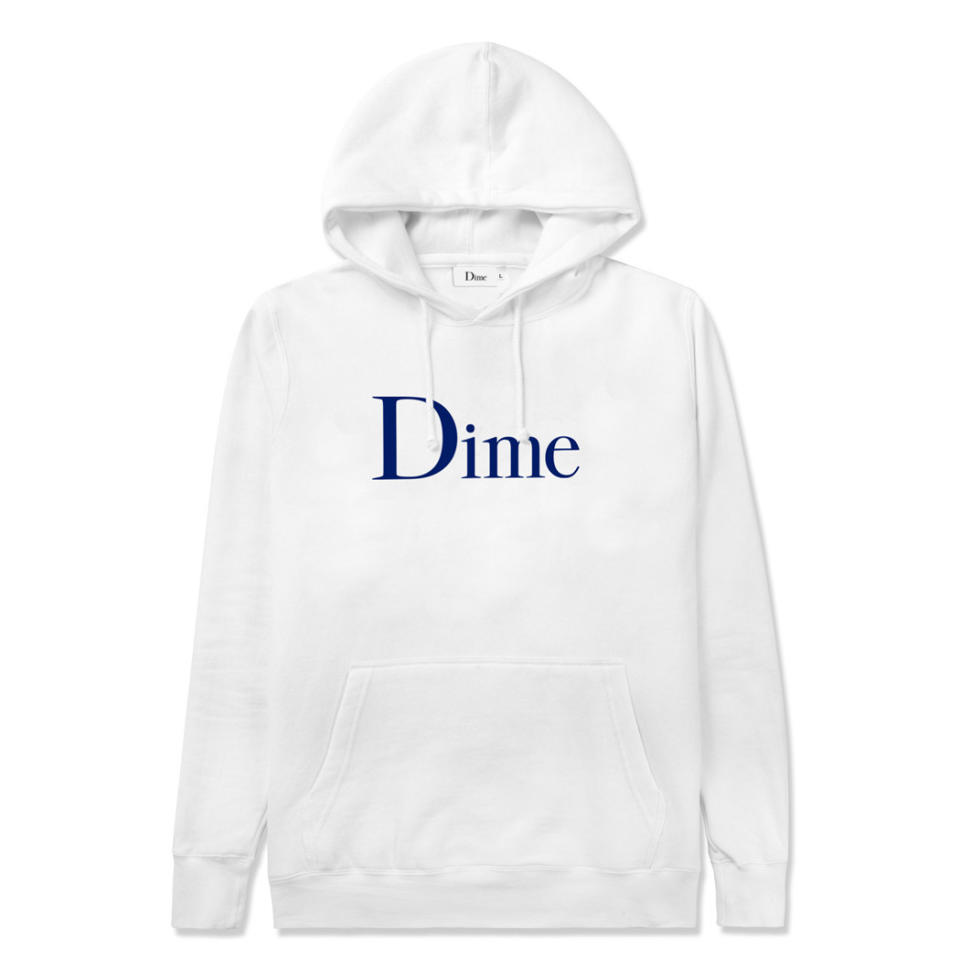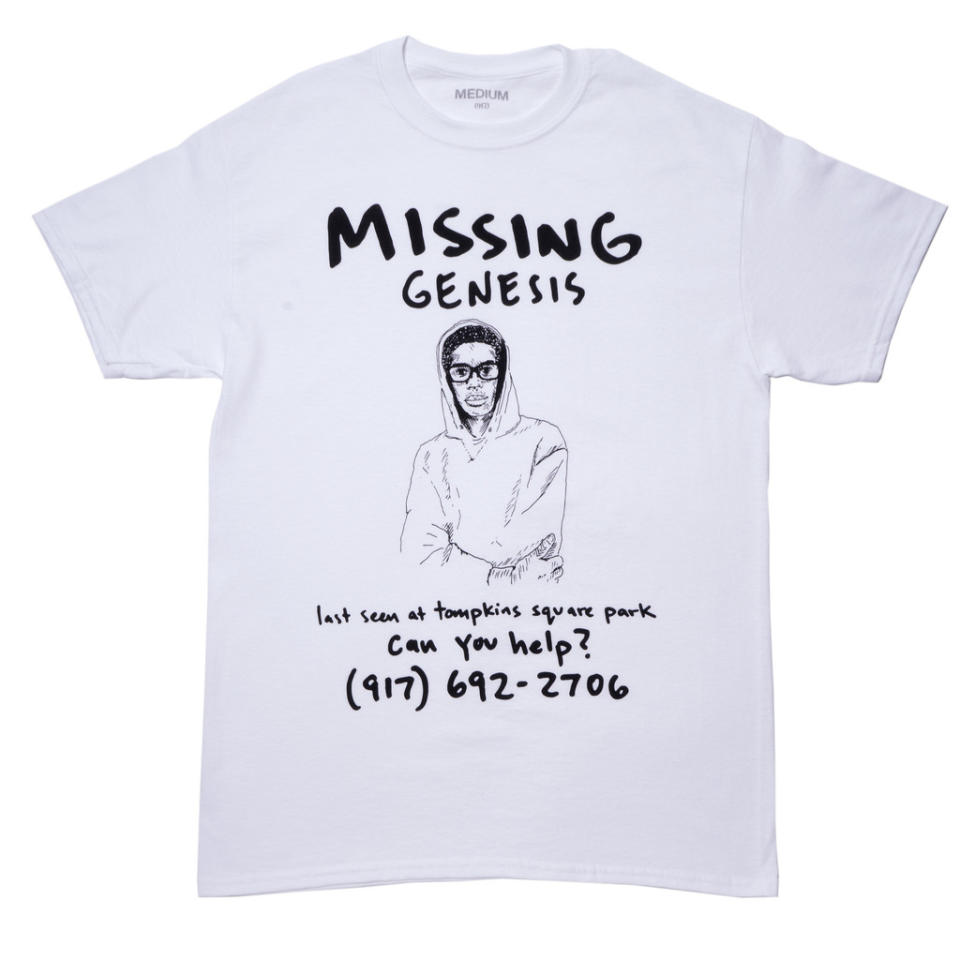The 25 Best Skate Brands Right Now
In the ever-volatile skateboarding industry, brands come and go, then come back again, only to go out once more, and eventually make room for the next person who is really in tune with what skateboarding is today. While no two brands can really be compared, the true signifier of their importance in skateboarding is how they can make a difference in the culture and bring something new to the table that hasn’t been done before. Every single brand on this list has been a part of something unique that has made us pay attention to them above all the others out there doing it in this saturated market.
From brands with an established legacy to the new players that deserve recognition for what they’re doing for skateboarding, these are the labels reaching an ever-growing audience as skateboarding becomes bigger than it’s ever been before. Get familiar with these names, as you’ll be hearing them more and more.
Roots: Founded in 1998 by Nick Tershay
Diamond has been a household name in streetwear for their dope caps, tees, hoodies, and sneaker collab hype that have had the Internet going nuts for years, but the brand's roots are in skate. While the list of collaborations and rapper co-signs is long (too long to list here), but for skate nerds the team is way more impressive—Raven Tershy, Ryan Sheckler, Torey Pudwill, Shane O'Neil, Stevie Williams, Paul Rodriguez… The list goes on.
Roots: Started in San Francisco in 2003 by Rob “Magnethead” Collinson.
A magazine?! This is an outrage! Yeah, it is. But Low Card has become the defacto hat brand for all the cool hesh skaters in America, so deal with it. Also, the mag's graphic tees, baseball shirts, coaches jackets, and beanies are all highly dope. The custom mesh hat program is the way to go if you feel the need to wear your “yeah, I skate” calling card on your head.
Roots: Founded by Kent Uyehara in San Francisco in 1986.
FTC was cool before there were skate and hype blogs around to tell you that they were cool. Mastermind Kent Uyehara built his brand from the back of a sporting goods shop into an international symbol of cool, with franchise locations in Sacramento, Tokyo, and Barcelona. FTC isn't just the go-to spot for skate gear in those cities-it's a full-blown brand that any skater would be proud to wear.
Roots: Founded by Adrian Lopez in 2009.
Skateboarders like things that aren't skateboarding, too, you know. Camping, fishing, motorcycles… Uh, skateboarding? Crap. Whatever. Pro skater Adrian Lopez founded Loser machine and the Dark Seas Division as a way to explore other facets of the culture through cool clothing. Loser Machine is a complete collection that goes far beyond that typical tees, jeans, and hats formula that many skate apparel brands rely on—leather motorcycle gloves, denim vests, and floral print button-downs are all evidence that this is a well-conceived project from a skater with good taste.
Roots: Founded by Jason Celaya in 2009 in Mission Viejo, California.
Somehow, in the great effort to fight societal conformity, skateboarding always manages to create its own conformity. Trends in styles of skating and fashion come and go. A brand gets hot for a year or two because it's on trend, then it fades to make way for the next thing. Welcome Skateboards doesn't give a fuck about all that. Yes, they are a little weird. The graphics are vaguely Illuminati, and they can't seem to make a normal shaped deck, but that's just Welcome doing its own thing, and who wouldn't welcome that?
Roots: Founded by Rodney Smith and Bruno Musso in 1986 in New York City.
Before Zoo York, Supreme, and 5Boro, New York had SHUT. For a short while, SHUT ruled, but soon the business fell out and founder Rodney Smith left to start Zoo York with Eli Morgan Gesner (who drew the original SHUT logo), and Adam Schatz. SHUT went dormant while the three men grew Zoo York into a successful business, and when they sold it off to Ecko in 2006, SHUT was reborn. The brand's flagship store resides on New York City's Lower East Side, so you can go witness skateboard history in person any time you want.
Roots: Founded in 2012.
What the fuck is Bro Style? That's what a lot of skate nerds found themselves wondering at the end of 2012. Bro Style crept onto the scene with a goofy guerrilla-style internet marketing campaign that involved little more than the thumbs up logo. Little by little, product started to trickle out—beanies, snapbacks, pocket tees, socks, and other odd ephemera—and a few video clips. Bro Style is still something of a mystery, but one thing is clear, it's not meant to be taken too seriously. And that is seriously important for the skate industry to remember.
Roots: Originally founded in 1994 by Russ Pope. Revived in 2005 by NHS with Darren Navarette and Lee Charron in charge.
The Creature team is a bunch of maniacs. Avoid them at all costs. But don't avoid this brand's awesome graphics. Creature's aesthetic is dark, twisted and often R-rated, but beneath the grim imagery there is a wink and a shitting-grin, as you can see with designs like the severed finger “Gang Sign” series of decks.
Roots: Founded in 1999 by Josh Beaudry and Andy Westhusing in Portland, Oregon.
It's apt that Tribute has taken an umbrella as the company logo. In a city that rains as much as Portland, skaters don't have too much to be stoked about. But that has done nothing to deter one of the strongest skate scenes in the US, which has the notorious Burnside skatepark, awesome brands like Tribute, and local rippers like Brent Atchley at its core.
Roots: Founded by Shane Heyl in 2008.
This brand gets its name from a slang term for strip club. One video was called “Chicken Bone Nowison,” and it opens with a scene of skater pummeling a security guard. Is that not awesome enough? If there is a company that embodies a more perfect IDGAF attitude in skateboarding, please let me know. For the homies, by the homies is their mantra, which is pretty cool with a team comprised of rippers like Theotis Beasley, Andrew Reynolds, Dustin Dollin, Jim Greco, Terry Kennedy, Lizard King… The list goes on.
Roots: Founded in 2008 and by Stacy Lowery and Michael Sieben.
The best criticism you could make about skateboarding in general right now is that it takes itself too seriously. Rightfully so. Skateboarders are often under attack, and what they do is illegal in most places. Skate culture is constantly being ripped off and bastardized. That's why it's so important to have a healthy sense of humor about it all, and that's why it's important that skateboarding has Roger.
Roots: Founded in 1996 by Steve Rodriguez in New York City.
Unlike California, where the sun always shines and the pavement has never seen snow and salt, New York only has a handful of skate brands. Funny when you think about the rich history skateboarding has in the City. 5Boro is one of the brands that has been keeping the tradition alive for more than a decade, and next time you see founder Steve Rodriguez out skating, thank him for making so much happen for skaters in NYC.
Roots: Founded in 1990 by Chris Carter and Mike Hill in Dayton, Ohio
Remember the cool skate kids wearing Workshop tees in the '90s? Well you don't see too many of those these days, but AW is still one of the best “big” skate brands going. The team alone—featuring Supreme muse Jason Dill, tech-gnar wizard Anthony Van Engelen, and the most handsome guy on a board, Dylan Rieder—puts the brand in the top 10. And even though you might not associate legacy riders like Rob Dyrdek with anything cool at all, he pulled one of the most boss moves in all skate business history when he bought the brand that first sponsored him 20 years ago back from Burton (who bought the brand from Chris Carter in 2008) last year, so Workshop is once again skater-owned.
Roots: Founded by skateboarder and artist Mark “Fos” Foster in England in 1998.
Skate graphics have often incorporated blood, guts, and gore into board and T-shirt designs, but few brands render gnarliness quite as well as Heroin Skateboards. It's no surprise that a brand founded by artist Mark “Fos” Foster would have such tight art direction. Fos has a loose, low-fi handstyle that can be see in much of the brand's designs, and the delinquent band of team riders and their antics are a perfect embodimentof whatever “image” Fos is after.
Roots: Founded by Mark Gonzales in 2002.
For those of you who don't know, Mark Gonzales isn't just an artist who occasionally pens logos for Supreme. He's a bonafide legend, as an artist, a skater, and a personality. His brand Krooked is a perfect expression of that, with art direction from the man himself, and a videography of skate flicks that includes essential viewing Gnar Gnar, Kronichles, and Naughty. Supreme may top Krooked on this list, but true Gonz stans will always represent with Krooked.
Roots: Started as a shop founded by Keith Hufnagel in 2002 in San Francisco.
Huf has come a long way since its humble beginnings slinging the best sneakers and streetwear in San Francisco's Tenderloin District. Keith Hufnagel and his team quickly outgrew the boutique niche and have becomea full blown skate apparel and footwear brand. Today Huf has a stacked teamed (including low-key legends like Joey Pepper, who recently got a signature shoe), a wildly popular range of product (weed socks, anyone?), and some hefty celebrity co-signs.
Roots: Founded in 1981 by Kevin Thatcher, Eric Swenson, and Fausto Vitello, published in San Francisco.
Yes, another mag, but owning a Thrasher T-shirt or snapback is a rite of passage for skate nerds. And as the brand's legend grows, its power as a symbol of skate culture strengthens. Collabs with Supreme and Parra, and some unexpected celebrity fans, prove that Thrasher is more than just essential reading.
Roots: Founded by Julien Stranger in 1995.
You know how people say shit like: Ernest Hemingway is “a writer's writer” and it's not really clear what that means, but you sort of get it? Well Anti-Hero is a skater's skate brand. Founded by underground hero pro skater Julien Stranger, Anti-Hero is a direct expression of his attitude towards the skate industry, which is basically that skateboarding is life and fuck everything else. Anti-hero has a reputation for being one of the gnarliest skate brands around, thanks in part to their team of heavies which includes John Cardiel, Tony Trujillo, and Chris Pfanner.
Roots: Founded in 2010 by Soy Panday and Vivien and Jean Feil in Paris.
Skateboarder owned and operated is Magenta's mantra. “No middle-man or business-person involved,” it says on the brand's site, so you know what you're getting from this French brand is pure, uncut skate to the core. All of the art direction and graphics are done by co-founder and team rider Soy Panday, who has developed a unique artistic perspective for Magenta. You'll likely to see numerous skaters kicking around on Magenta boards in NYC these days, and with a strong offering of T-shirts, coaches jackets, caps, and a funny boxer short collab with Lousy Livin, there is plenty to appreciate.
Roots: ounded by Kevin Susienka and Steve Costello in 2006 in Somerville, Massachusetts.
Harsh weather, cracked pavement, angry cops—all things that make Raw New England just so raw. The name is also an acronym for Ready Amongst Willing—a perfect moniker for one of the East Coast's toughest brands. Raw's product drops aren't quite as frequent or bountiful as some other brands on this list, but the decks, tees, hoodies, and caps with the bold RAW logo are must-haves for New England's skate crowd. Visit the brand's shops in Boston or in CT to get the goods in person.
Roots: Founded in 2010 by Lev Tanju in London.
'90s nostalgia is the name of the game. VHS tapes. Grimey hip-hop. Drinking forties, smoking blunts, skating filthy street spots at night, and general hooliganism are cornerstones of skateboarding's mid-90s golden years, and Palace is all about that life. No wonder you see the tees and skate decks stocked at Supreme, the only brand that compares to Palace when it comes to nailing that “fuck it” aesthetic. Palace gear has been causing an uproar lately—yes, Palace was on that designer parody tee shit before everyone else, and yes, the collab with Umbro was one of the best we've seen in years—but make no mistake the brand is skate to the core, and no amount of hype will change that. Let's hope, anyway.
Roots: Founded in 1997 by Jeremie Declin in Lyon, France.
Make no mistake, not all European skate brands are provincial microcosms. Cliché has one of the most stacked teams in the industry, including the Australian master of pop Andrew Brophy and manual wizard Joey Brezinski. But the real star of the squad is Frenchman Lucas Puig, who has a stellar signature shoe for adidas, and an upcoming line of caps called Hélas that you will undoubtedly be hearing more about in the near future. Team aside, thanks to strong art direction, a prolific video program, and a highly covetable product offering that includes a dope collab with NYC mainstay DQM, Cliché is très ill.
Roots: Founded by Pontus Alv in Malmo, Sweden.
It's too cold and dark to skate in Sweden for about six months out of the year. That must be when brand mastermind/artist Pontus Alv schemes on the global takeover he's been orchestrating for Polar. Not only are the brand's hats, tees, and hoodies some of the most coveted gear in the skate universe, the Polar team travels the globe hosting events, filming video clips, and getting people hyped on vigilante-style street skating. Look for Polar to come to your hood and build awesome, illegal concrete skate obstacles under a bridge, then bounce like gnarly, European skate tooth fairies. Good luck finding a tee or hat at this point—hype has made to goods rare, but let's hope as the excitement grows Mr. Alv will expand his distro.
Roots: Founded in 1994 by James Jebbia in New York City.
The magical thing about Supreme is that—despite what some may think—it actually caters to everyone. While they may not go out of their way to make you feel welcome, at its core, the brand is a legendary downtown skate institution, and there is no singular sensibility you can pin on Supreme. It's hip-hop and punk, menswear and streetwear. The unifying aspect is deep roots in skate, music, and art. Beyond that, anything goes.
Supreme may be something of an outlier in the skate industry where few brands have brick and mortar presence, and limited distribution is aproblem, not a strategy. Unlikely or not, Supreme kills it as a skate brand and as a brand in general. No other skate brand can claim the level of accomplishment that Supreme has achieved—nine retail stores around the world, collaborations with the biggest names in fashion and art, and a confounding secondary market of resellers and collectors. Supreme reigns supreme.
Girl Skateboards/Chocolate SkateboardsRoots: Founded in 1993 by Rick Howard, Mike Carroll, Megan Baltimore, and Spike Jonze in Torrance, California.
Let's be clear: Mike Carroll and Rick Howard are legends and modern skating wouldn't be shit without them. There. When the two good pals left Plan B to start their own brand in 1993, skateboard history was made. Girl and Chocolate are separate brands, but they act like two sides of the same family, and after 20 years making decks and apparel for skateboarders, the clan is stronger than ever.
The most recent Girl Films production, Pretty Sweet, signified a passing of the torch for one of the most talented skate teams in the biz. Some may have been disappointed to see Rick Howard and other OGs ride the bench, but new jacks like Alex Olson and Mike Mo Capaldi, and the Trunk Boyz Elijah Berle, Raven Tershy, Stevie Perez, Vincent Alvarez, and Cory Kennedy, leave little doubt that we're in for another 20 years of epic skating and killer goods.
Roots: Founded by Nick Jensen in 2014
Isle is much newer to the game than a lot of the other brands mentioned on the list, but that doesn’t mean they don’t deserve the same respect. Drawn straight from the mind of skateboarder Nick Jensen, a London native with the eye of a true artist, Isle’s graphics could just as easily be hanging in a museum rather than in skate shops. Jensen’s creative process involves him sculpting, painting and photographing every board graphic himself in his own studio, manipulating each art piece to work as a graphic. Isle offers one of the most well developed brand images in skateboarding, due in big part to the fact that it is literally an outlet of one man’s own rampant creativity.
Roots: Founded by Grant Yansura in 2014
WKND turned a successful web series on the popular skateboarding site The Berrics into a company that is truly nothing but homies having fun and making videos they think are funny. Some people might dismiss them as another flash in the pan brand started by a crew of guys with some extra cash, but those same people have probably never watched American WKND and realized these guys are no fluke.
Their hard and soft goods feature 90’s imagery like Kurt Cobain with Courtney Love and Corey and Topanga from Boy Meets World, and it comes together to become pure fun for the hell of it. With brand mastermind Grant Yansura holding a spot as an official videographer for Nike SB, you know he must be doing something right with all his work. His Cosmic Vomit series is just another insight into the breadth of his great work.
Roots: Founded by Brian Anderson in 2014
It was a slow start for 3D, who had Alex Olson bail on them when they first started out before they could even get their first run of boards inside of shops, leaving the company at just two riders: Brian Anderson and Austyn Gillette. Now, due at least partially in part to Brian Anderson’s solidified status as a skateboarding legend, 3D has taken off and become an established brand that’s not taking itself too seriously, but still putting on for skateboarding. 3Ds first video offering, featuring amateur rider Tom Karangolov in a dreamy pink colorcast world, has even showed that they’re looking to shake things up in the stale footage side of skateboarding.
Roots: Founded by Kosta in XXXX
Sure, it’s technically an online magazine, but if you think that disqualifies it from being one of the best brands in skateboarding, you must not know what’s up.
Quartersnacks has been on one these past few years, making soft goods that will instantly make you look like you don’t actually suck at skating (me), and getting the honor of customizing their own Nike SB Dunk Low. Name another company in skateboarding that has that, and a book about their first decade of history coming soon through the world-renowned Random House publishing company? We’ll wait.
Roots: Founded by Peter Smolik in XXXX
While they might not be so well known as an apparel company as so many other brands on this list, Sk8mafia stays winning with skateboarding’s core base. Their most prominent pro, Wes Kremer, was named Thrasher’s Skater of the Year for 2014, and they continue to drop a monthly edit featuring their whole crew through Ride Channel. The Mafia keeps the streets fed.
Roots: Founded by Kent Uyehara in 1986
FTC has grown from being the staple skate shop of the Bay Area to being a respected brand pushing skateboarding across the globe. Their SF flagship sits in the famous Haight Ashburry district, always attracting visitors and giving them a look into what skateboarding is really like in this day and age. FTC will have you covered in their own gear, and will also always be pushing the next big thing in their shops, and they never make a bad call.
Roots: Founded by Mark Gonzalez in 2002
Mark Gonzalez can do no wrong, and as long as he is at the head of Krooked, Krooked will be in the conversation. Krooked has been the Gonz’s brainchild for some time now, always featuring a great selection of his unique style of art and illustration. No brand can be held up by one man alone, and the Gonz has made sure to keep his selection of riders carefully picked, with each one bringing their own offerings to the table. Brad Cromer is not Ronnie Sandoval is not Mike Anderson, yet somehow it all works out and comes together to create one of the best brands out.
Roots: Founded by Jason Dill in 2001/Anthony Van Engelen in 2015
Technically—these are two separate companies, but their shared history makes them worth mentioning in a single stroke. Fucking Awesome started out when Jason Dill and Anthony Van Engelen decided Alien Workshop was fucking up and no longer the best place for them to be. That actually factors heavy into why a lot of brands on this list came to be.
Fucking Awesome has existed in some form or another for over a decade now, but only recently became a legitimate board brand. Now you see their logo tees and hoodies on everyone from rappers to models, but their infamy in skateboarding has come from their riders’ clips in Supreme’s cherry.
Hockey came into being after AVE tried to bring on a couple more Alien Workshop ams after their downfall, but couldn’t seem to fit them in with the rest of the FA picture. The result was a small company pushing raw and stylish skating whose graphics and illustrations create an aesthetic playing off of the beauty of destruction.
Roots: Founded by Chad Bowers in 2015
Started by a group of guys who decided to stick together after the fall of Alien Workshop, Quasi skateboards presses boards and prints shirts featuring psychedelic art for the year 2015, offering something different than most board brands today. Backed by a team boasting hometown heroes and certified style gawds, Quasi is a board company everybody wanted that nobody had made yet.
Quasi started off as Mother Collective, but faced a cease and desist from a similarly named company, and pivoted to become what they are now without ever missing a step. While they have yet to put out a video project, their line of soft and hard goods is already showing they’re here to stay.
Roots: Started by Peter Sidlauskus in 2012
As loosely defined as Bronze is, Peter Sidlauskus seems to be incapable of doing anything wrong in his marketing for the brand, endlessly putting out amazingly hilarious and gnarly New York based edits featuring a loose group of guys we can say make up their “team.” Bronze brings an aesthetic that falls somewhere between vaporwave and deepweb, and is always making gear that you can rock on the daily, from pink dad hats to coaches jackets. You might have even seen their flip of the Windows 98 logo on the backs of people like ASAP Nast.
Now venturing into making boards through a sister company Jamaica after running a line of them under their own Bronze name, Bronze has not slept after catching their first break of success. They recently collabed with Palace on a collection that instantly sold out, and have already dropped the successful first half of their collaboration with HUF. Keep an eye out for the second installment of that coming soon.
Roots: Started as a shop founded by Keith Hufnagel in 2002
Sure, the sight of someone wearing weed socks or a weed five-panel is a bit ubiquitous enough to make old heads slightly resent HUF, but then they go and make products like the Classic Hi and Lo and release their video and clothing collaborations with Thrasher, and haters are quick to forget they were ever mad at them.
HUF has clearly mastered the streetwear game and has moved on to trying to master the skate shoe game. The addition of Dylan Rieder and Austyn Gillette to their roster, and their subsequent pro shoe model releases have shown that they’re a brand that’s not afraid to take risks and try something new, pushing a fashion forward image supported by a group of guys who you might feel you can wreck in a fight, but who will probably steal your girl even after you punch their face in.
Roots: Founded by Josh Stewart as a webstore
Theories of Atlantis is a brand that truly defies categorization. Josh Stewart’s brain child has gone through more phases than most companies, first being a means for him to put out his own series of Static videos featuring New York skaters, to now being a full blown distribution house for smaller boutique skateboarding brands featured on this list. Josh also puts out a line of soft goods with the turn of every season, playing off conspiracy theory style graphics and imagery on staple items like zip hoodies and long sleeves.
The spirit of Theories is what makes it a success, always finding a way to contribute to the true culture of skateboarding, even when it means restructuring from a small web store to a major stockist for fledgling brands trying to take hold in the industry.
Roots: Founded by Soy Panday and Viivien and Jean Feil in 2010
One European brand steady killing the game is France’s own Magenta. What Palace is for London, Magenta is for Paris, representing what it means to make do with skating in a place where you will literally get kicked out of everywhere just for riding on your board. With a recent collaboration with adidas, Magenta has shown they can turn their niche image into something with mass appeal, so long as the world will pay attention. Skateboarders already know the brand for their quick-footed style of skating and their unique illustration style, but they should know Magenta for their conscious effort to make sure we all are enjoying the pleasure and the freedom skateboarding brings.
Roots: Founded by Pontus Alv in 2013
Adding another European brand to the list, we have Swedish board company Polar Skate Co., founded by ex-Cliché and Emerica rider Pontus Alv. Polar popularized a unique style of dress and skating when they first hit the scene, and they had everybody learning wall rides and no complies in Converse and black long sleeves in every part of the world.
After expanding from a successful board brand featuring Pontus’s own art and photography, the brand grew into making a high quality line of apparel that borders between athletic wear and traditional skate style. Over the last couple of years, Polar dropped jerseys and polos in high quality athletic materials, collabed with Converse on a couple of Chuck Taylors, and always kept a steady stock of their classic heavy chinos and hoodies, building up a brand you could literally rock head-to-toe.
Roots: Founded by Steve Rodriguez in 1996
Headed up by a true New York skateboarding legend, Steve Rodriguez, 5Boro is the quintessential New York skateboard company. With their edits rarely featuring the crew leaving the city, they make do with the rough and crusty streets of Manhattan and the outer boroughs to continually put out ill footage.
This past year, they dropped the insant classic VHS series of decks, playing off of the nostalgia of old blank VHS tapes used to film back in the 90’s, creating a high demand for restocks in skate shops across the world. This series almost singlehandedly brought them back in the forefront of skating to the world beyond New York, and we can only wait to see what they’ll do next.
Roots: Founded by Jim Greco in 2014
Skateboards just aren’t what they used to be, and that doesn’t make Jim Greco, Baker and Deathwish OG, happy whatsoever. Greco started the company last year as an effort to bring back skateboard manufacturing to the USA from overseas in China, using the traditional silk screen ink transfer and hand shaping methods from the early days of skateboarding.
The boards are always stunning, featuring punk style illustrations and photography transferred in vivid colors, and are very in line with the long tradition in skateboarding of not giving a single fuck. Add a line of graphic t’s that’s bold but understated, and you get a brand that skateboarding is lucky to have in this day and age.
Roots: Founded by Joe Castrucci in 2000
Habitat proved itself as an established power in skateboarding when it survived the downfall of the parent company that owned and killed Alien Workshop, being able to persevere and even name new pros through the whole restructuring. They moved their products under Tum Yeto Collective, the parent company/distribution house of other powerhouse skateboard brands like Toy Machine, and now it’s as if they were never in any danger. If you have any doubts about why Habitat is on this list, just watch Mark Suciu’s part in Search The Horizon and never question it again.
Roots: Founded by Jason Celaya in 2009
Welcome is doing everything the way that people would probably tell you not to when it comes to how they run their board company. With no real full-length project out since it became a company, and with no pros to name, but boasting a full roster of official riders, Welcome is as unorthodox of a skate company as it gets. They don’t even make a single board in the traditional popsicle shape most boards are made today.
Their fan base loves them for pushing goofy but fun looking skating that in reality is heavier and rawer than most will realize, and their board graphics and t-shirts feature art from their riders in striking colorways. Their product immediately stands out among the bunch at any shop it’s stocked. These guys are doing things exactly their way, and it’s sticking.
Roots: Founded by Omar Salazar in 2012
Omar Salazar suffered a bad knee injury recently and was sidelined from skating, allowing him to refocus his energy into running his company, Doomsayers. Following the demise of Alien Workshop and facing an uncertain future in the industry, Omar decided to really focus on a brand whose image is not shy about its disdain for corporate greed, which many people blame for the demise of his long time sponsor.
He backed it up with a team of guys whose skating is no frills and raw as it gets, just like Omar’s. The result is a brand that makes heavy-duty gear that can take the beating that comes with slipping out on a hill bomb in San Francisco, and that shows no signs of going anywhere any time soon.
Roots: Founded by Lev Tanju in 2010
There’s no way have never seen a Palace logo at this point, and if you haven’t that’s cause you shleep, bruh. Palace is one of the best out there doing the whole “high fashion or skate brand?” thing, and they hold a unique place on this list for being one of the few brands not based and started in the U.S. The Palace Wayward Boys Choir, like many before them, turned their group of friends into a successful crew of respected pros, who you will never see on Fox Sports 1 skating in a multi-million dollar contest.
These guys are unabashedly all about London and the party boy lifestyle. The self-aware attitude they carry themselves with shines in the corresponding product copy on their website—it’s contagious and makes you want a piece of it. Everyone from A$AP Rocky to Drake, and even seemingly out-of-touch Jay Z has been seen rocking the gear, and it’s understandable why. Palace’s design team, which includes Fergus Purcell of Marc Jacobs, have created an image that’s been exclusive and dope from its inception, and they’ve yet to break that streak. Who else could follow up a dope adidas collaboration with an excellent pair of penny loafers?
Roots: Founded by Julien Stanger in 1995
The 18 has made some moves over the past few years that have shown they’re not a bunch of old hesh dudes that piled out and are just holding onto their stronghold with guys who are all about tattoos and brews. They collabed with Supreme and had one of their legends, Andy Roy, model the lookbook, and also put out Destination Unknown, a full video about their vagabond travels in the hunt for anything to skate. Most recently, they released What’s Up Monkey?, an all iPhone full-length video shot all across the world.
The team also recently added Southern ripper Grant Taylor to the team, who is heralding the next generation of transition skaters who skate more like all terrain vehicles than just your normal park skaters from the 80’s and 90’s. The legacy of Anti Hero will live on because of people like him.
Roots: Founded by James Jebbia in 1994
If Supreme wasn’t featured on this list, we might get a long list of hate in the comments, but I’m not adding it just to satisfy the hypebeasts. Over the past few years, what was previously dismissed as a brand that catered mostly to resellers has once again gained a spot at the forefront of what is important in skateboarding today. With the release of cherry in 2014, Supreme showed the world that they haven’t forgotten their roots, and reminded us they will always be a skateboard company first and foremost.
They have continued to ride that wave over the past year, continuously putting out great edits, following cherry up with Sickness, Red Devil, Joyride, and Swoosh, all in collaboration with cherry’s filmer Bill Strobeck. We all know they will never fall off when it comes to putting out fire gear every new season and drop, but to keep it coming with actual great footage is another story, and is definitely making skateboarding better today.
Roots: Founded by Pryce Holmes in 2013
Alltimers is easily best known for their series of uniquely shaped boards, having been featured on Conan O'Brien when Marisa Tomei was a guest. Conan pulled out a skateboard shaped like her body featuring a graphic of her in a swimsuit. What other skate decks do you see getting random shout outs like that on late night TV?
They keep a fresh line of T-shirts, hoodies and hats rolling year round as well, to go with the Lamborghini shaped boards, or the Gucci bag boards with stacks of money shaped board. Alltimers definitely knows how to not take themselves so seriously and have fun with the lucky position of running a hit board company.
Roots: Began as a skate crew making videos founded by Antoine Asselin and Phil Lavoie in Montreal
What started off as a crew of Montreal skaters filming full videos featured on SLAP magazine has suddenly turned into one of the highest quality and apparel brands in skating today. When Virgil Abloh drops by to your pop-up shop and your skate contest, you must be doing something right. Coming fresh off a recent collaboration with Vans, Dime seems to be keeping the clean silhouettes and instant classics on deck.
Aside from keeping the more fashion-oriented side of skateboarding placated with ultrasoft crewnecks and clean 6 panel caps, Dime keeps the side of skating focused on actual footage and hijinks fed through their Instagram and Snapchat accounts (@dimemtl), where they post their day-to-day in Montreal doing what skateboarders do best: having fun with their friends.
Roots: Founded by Alex Olson in 2014
Alex Olson’s Bianca Chandôn has quickly blurred and crossed back and forth between the line that currently divides high fashion and skateboarding, pushing an androgynous aesthetic inspired by looks found in Tom Bianchi’s Polaroid book Fire Island Pines, which nobody was ready for. Olson has turned what started off as an idea for a small board brand into a hype machine that has become a hit across the world.
Bianca Chandôn’s offerings can be found in high-end shops like Trés Bien and Supply, while Call Me 917, the sister company focusing on producing skateboards and hosting a skate team can be found mostly at select skate shops, such as New York’s own Labor Skateshop, but is also stocked at elite retailers like Dover Street Market. This brand duality allows Olson the freedom to explore new fields like cut-and-sew and womenswear with Bianca, while staying true to skateboarding with Call Me 917.
Continue Reading On Complex






